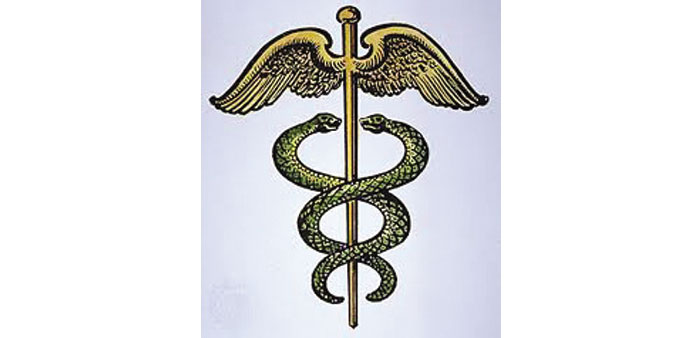Guardian News and Media/London
Women in the UK have the 10th highest rate in the world for cancers linked to a lack of physical activity, research has found.
The estimated number of diagnosed cases of bowel, breast and womb cancers in 2012 was 78,935, about 12,000 of which could be prevented if people were more physically active, according to scientists.
When the figures, published by the International Agency for Research on Cancer, were standardised by age so that different countries could be compared on an equal basis, the UK had 133.3 cases per 100,000 people.
“It is worrying,” said Dr Rachel Thompson, head of research interpretation at World Cancer Research Fund. “Not only are they (bowel, breast and womb cancers) related to physical inactivity, they are all related to excess body fats. It does look like lifestyle plays an important part. If people lived healthier lifestyles, a number of cases of cancer could be prevented.”
Just 36% of British women meet the government’s recommended physical activity guidelines of at least 30 minutes of moderate activity five days a week.
After not smoking, maintaining a healthy weight is the best thing to do to reduce cancer risk.
Scientists estimate that about 12% of bowel and breast cancer cases and about 10% of womb cancer cases in the UK could be prevented if people were more physically active - about 12,000 cases each year.
Barbados has the highest incidence per 100,000 people, with 154.9 cases of the three cancers, but the top 10 is dominated by western countries, with France (fifth) and the US (eighth) also on the list.
Thompson said there were issues with the quality of data from Barbados and the Bahamas, the only other non-western country appearing in the top 10. Thompson added that western countries’ rates could be pushed higher because of better registration of cases and more scanning, but that the sedentary lifestyles of many people in western countries were having an effect.
Statistics from the Eurocare-5 study published in Lancet Oncology last month suggested that bowel cancer was one of a number of common cancers in which the UK survival rate was lower than the European average.
Kevin Fenton, national director of health and wellbeing at Public Health England (PHE), said: “PHE are committed to helping to prevent cancer through promoting healthier lifestyles. This includes reducing obesity levels, which will in turn reduce the risk of some cancers and long-term illnesses. Through national campaigns such as Change4Life, the public is supported to adopt healthier lifestyles which include simple steps to healthier eating and taking regular physical activity.”
Separate research published yesterday showed that the number of people dying from oesophageal cancer - affecting the gullet or food pipe - has risen by 49% in the past 40 years. The figures published by Cancer Research UK show that about 7,600 people (13 in every 100,000) die each year from oesophageal cancer, compared with about 3,800 in 1971 (eight in every 100,000). It is now the sixth most common cause of cancer death in the UK.
The charity urged people with persistent heartburn, an important risk factor, to see their GP.

